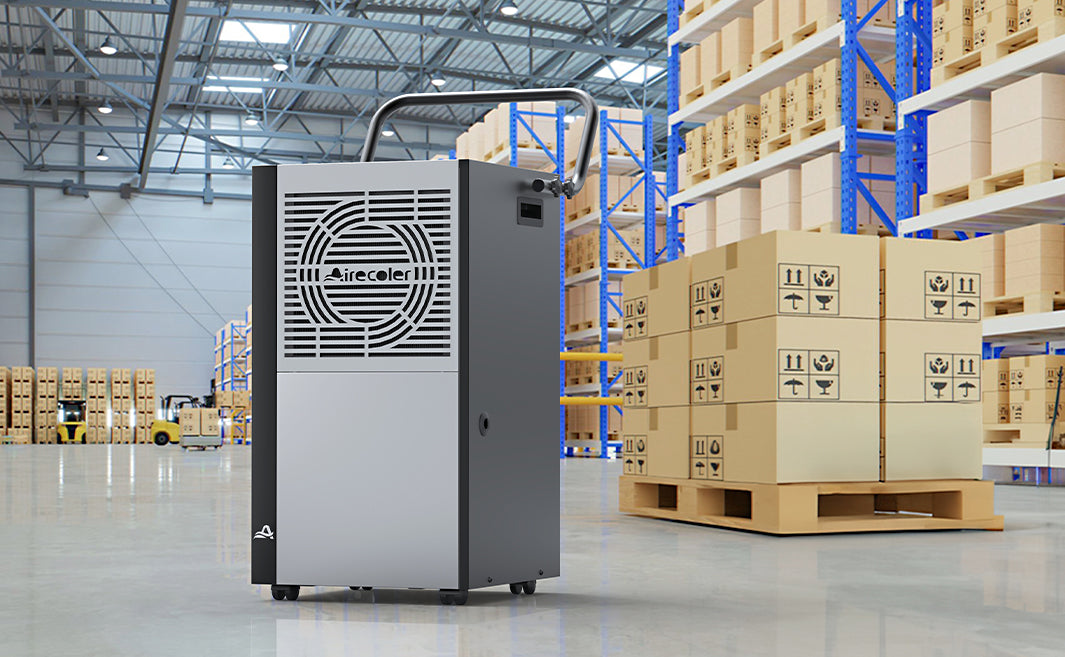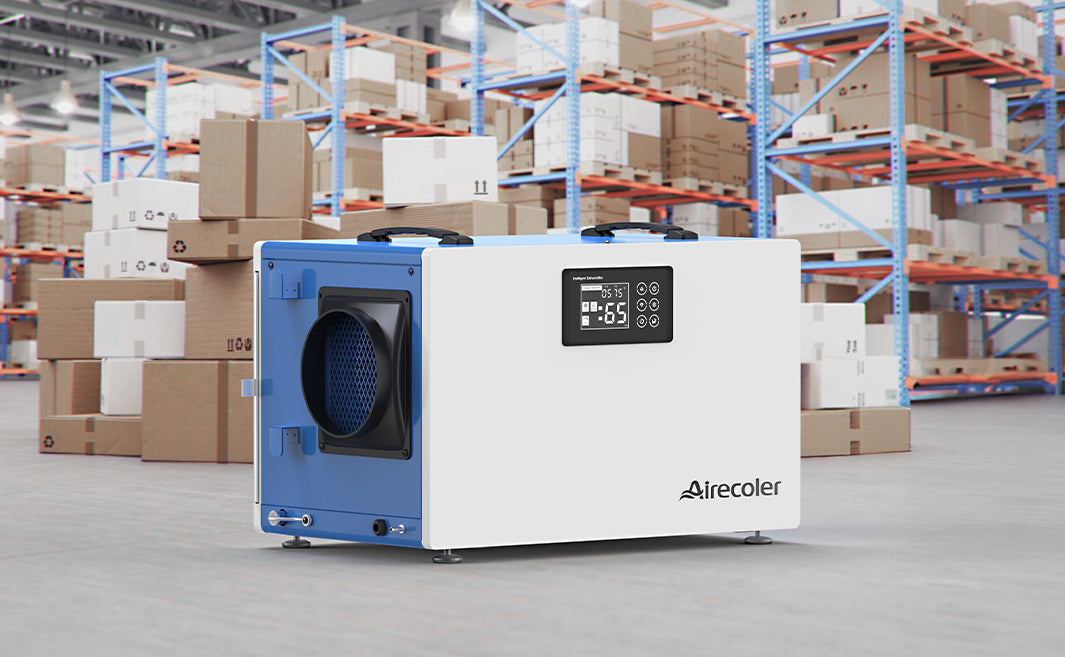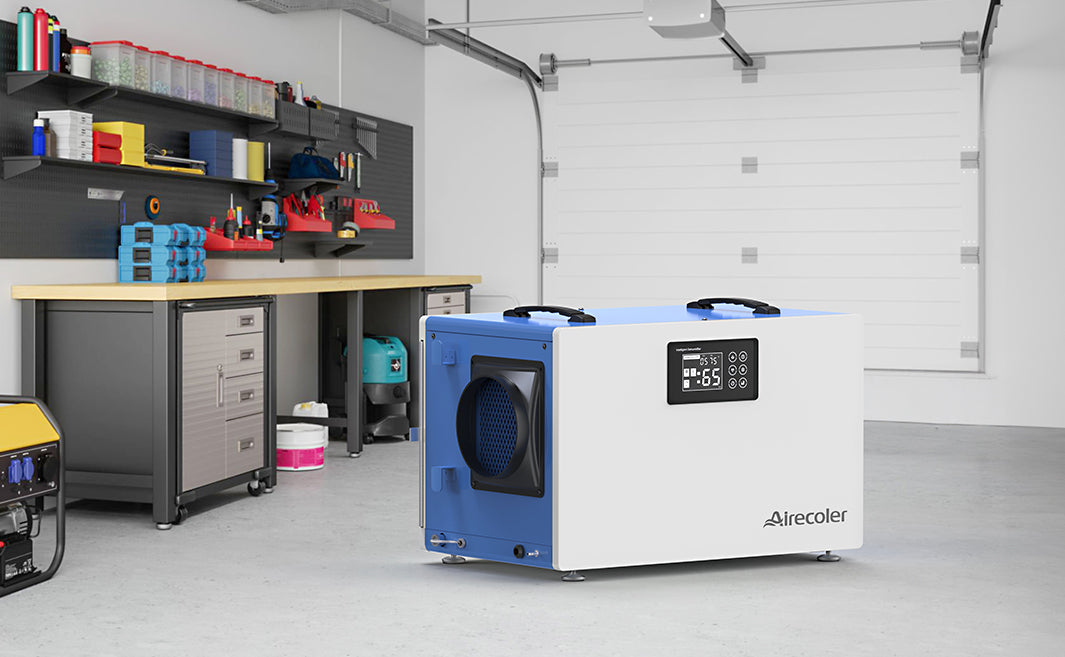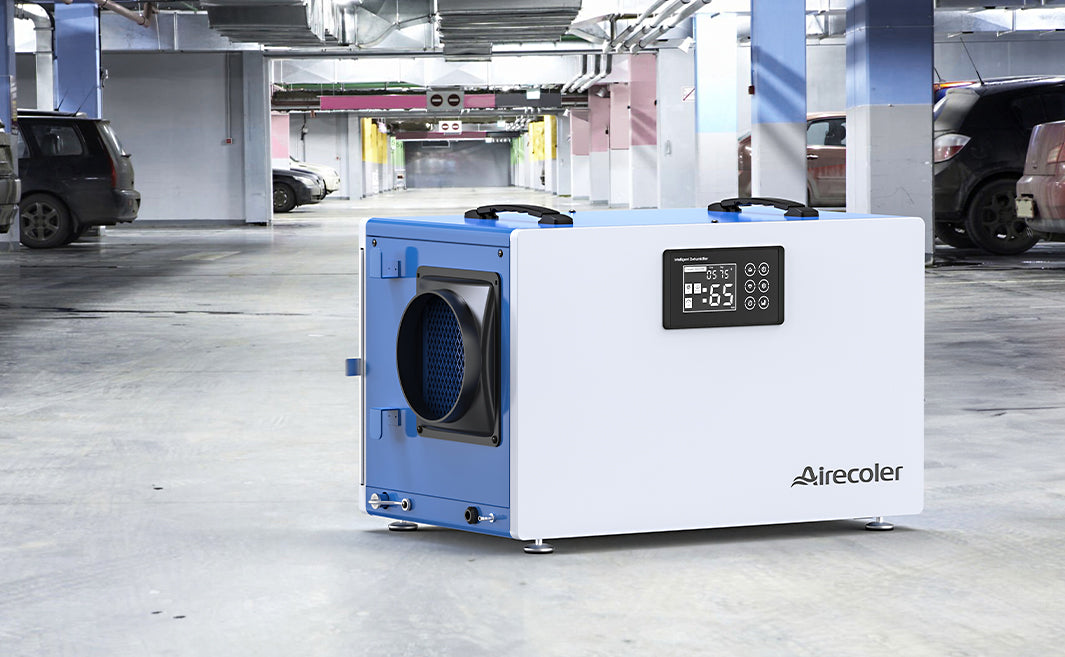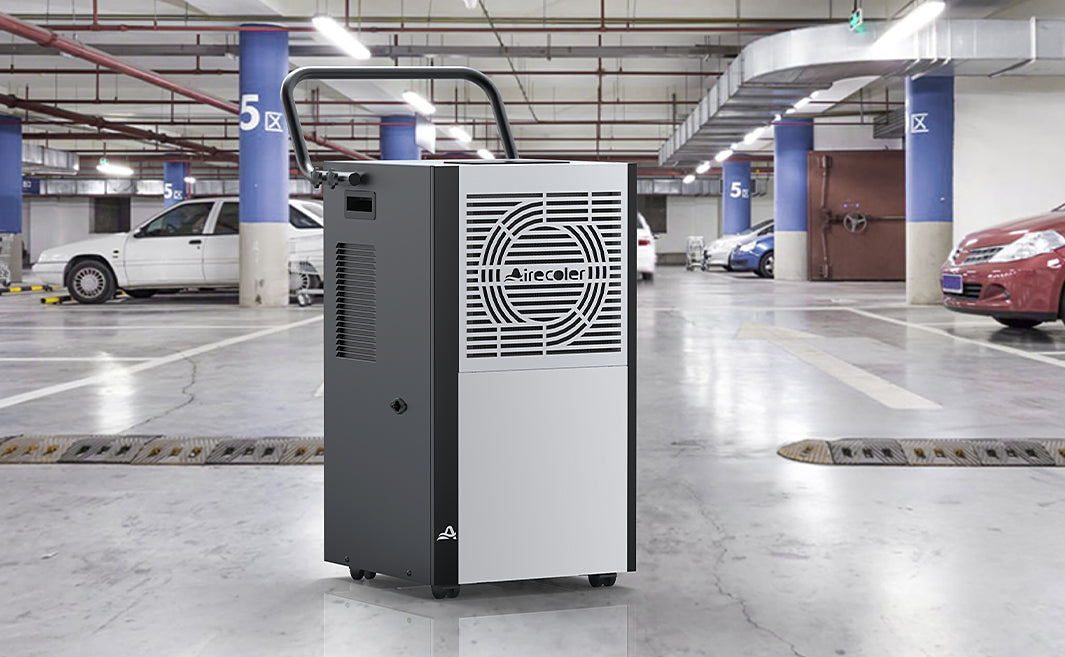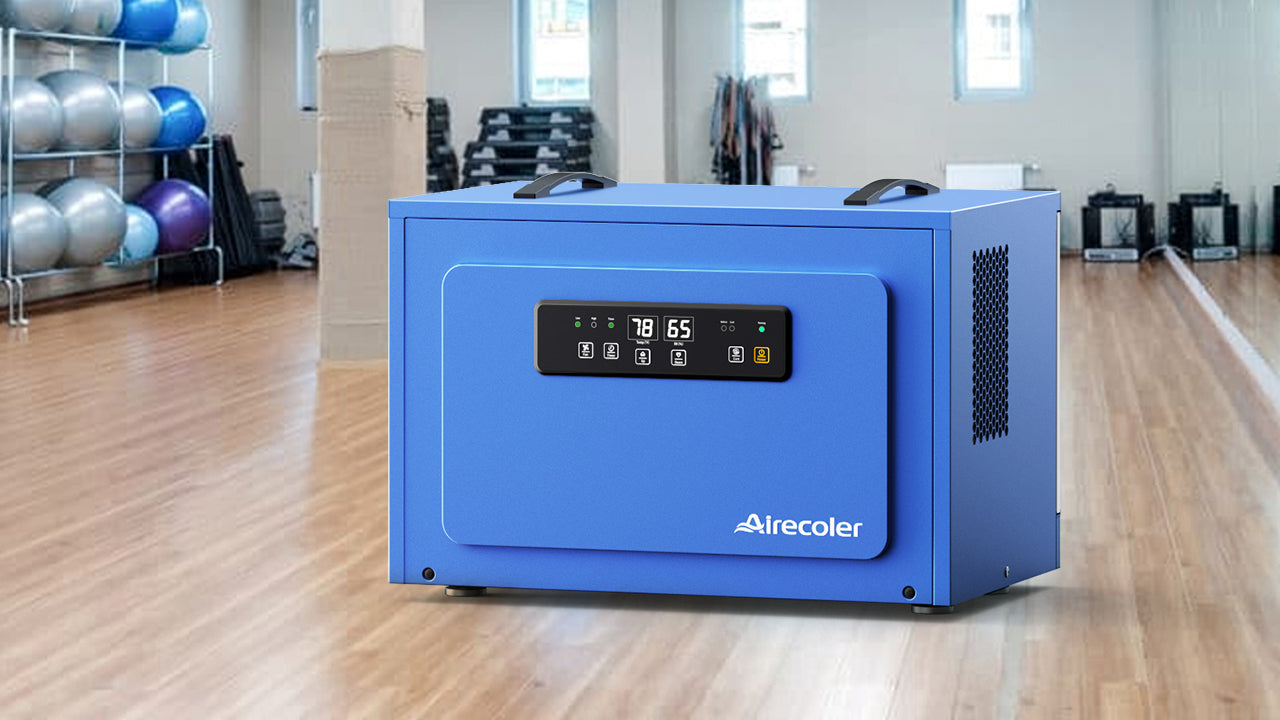Airecoler Team
April 15, 2025
Where should the dehumidifier be placed in the crawl space?
Crawl spaces are naturally prone to excess moisture, which can lead to mold growth, structural damage, and poor air quality throughout the home or facility. Proper placement of a commercial dehumidifier is essential for maximizing efficiency and achieving consistent humidity control in these tight areas.
Understanding the Importance of Proper Placement
Why Placement Matters
The effectiveness of a crawl space dehumidifier depends heavily on its location. Poor placement can lead to uneven drying, stagnant air pockets, and even overworking the unit, leading to higher energy use and reduced lifespan.

Aire Circulation is Key
To ensure your dehumidifier performs at its best, it must be positioned to allow maximum airflow. Crawl spaces often have structural obstructions—such as support beams and ductwork—that can block the unit’s intake or exhaust, limiting its ability to circulate and condition the air properly.
Centralized Positioning
Whenever possible, install the dehumidifier in a centralized area within the crawl space. This ensures more even coverage of the area and reduces the risk of moisture pockets forming in distant corners.
Tips for Optimal Dehumidifier Placement in Crawl Spaces
Avoid Blocking Air Intake and Exhaust
Keep a minimum of 12-18 inches of clearance around the unit’s intake and exhaust. This allows for unimpeded air movement and improves the unit’s ability to pull in humid air and distribute dry air effectively.

Use With Vapor Barriers and Insulation
For best results, combine your dehumidifier with a vapor barrier on the crawl space floor. This reduces ground moisture infiltration and enhances your unit’s ability to maintain the desired humidity level with less energy usage.

Elevate the Unit
Place the dehumidifier on a raised platform or mount it between floor joists if floor space is limited. This protects the unit from water pooling during heavy rains or plumbing leaks and allows for better drainage and airflow.
Drainage and Maintenance Access
Ensure Easy Access for Drainage
Choose a spot that allows for smooth drainage—ideally near a sump pump, floor drain, or along a sloped area where gravity can assist. For pump-equipped models like the Airecoler GT-XP5 or XP7, placement near a vertical drainage point ensures reliable operation.
Accessibility for Filter Changes and Servicing
Make sure the unit is placed in a location where the air filter and control panel are easily accessible. This simplifies routine maintenance like filter cleaning, hose checks, and performance adjustments.

Recommended Models for Crawl Space Applications
Airecoler GT-X5 and GT-XP5
Compact yet powerful, both models deliver up to 125 pints/day and are designed to fit in low-clearance spaces. The XP5 features a built-in pump for convenient drainage, while the X5 offers a hose-ready option.
Airecoler XP7
For larger crawl spaces or more severe humidity issues, the XP7 provides 170 pints/day of moisture removal, built-in pump drainage, and robust airflow for faster drying and broader coverage—up to 7,500 sq. ft.
By carefully selecting the placement of your Airecoler commercial dehumidifier in the crawl space, you can significantly enhance its efficiency and effectiveness. Proper positioning not only improves moisture control but also contributes to a healthier environment, safeguarding your home from mold, mildew, and other moisture-related issues.

